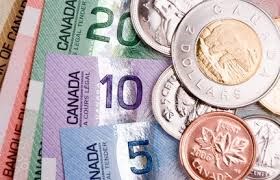The weather has been cold and wet but the biggest shopping season of the year is sizzling hot.
According to the Better Business Bureau, Canadians typically spend in the range of $30 billion over the holiday season. That includes everything from candy canes to ski trips. Scammers know that we are more likely to spend and give more over the next few months than any other time of the year.
“Our warnings definitely have a seasonal flavour,” Evan Kelly of BBB serving mainland B.C. said in a press release. “However, it’s no mystery that we tend to be more giving and free with our cash this time of year. This can lead to being more impulsive and less cautious with how we spend our money and who we give it to.
“And remember, if the price is too good to be true, it could be a scam.”
BBB offers the following advice on some of the issues it sees year after year:
Charity Scams
• Do your research.
• Give to those organizations you’ve given to in the past.
• Be the instigator.
• Be wary of new crowdfunding links.
• Check with the Canada Revenue Agency for a charity’s legitimacy and financials.
E-Card Scams
• If you don’t know who it’s from, don’t open it.
• Make sure there is a real family name instead of generic “From your Son.”.
• Contact the person who sent it to see if the actually did.
• Update your antivirus protection.
• Don’t click on any links if you are uncertain.
Travel Scams
• Book travel through reputable websites and travel companies.
• Check a company’s BBB Rating at bbb.org/mbc.
• If booking through portals like Air BnB, research the property you wish to rent.
• Follow all of their terms and conditions.
• Look for online reviews of the property.
• Look for property where you can meet the owners on arrival.
• Buy cancellation insurance and read the fine print for any booking you make.
• Be wary of specials that ask you to act now.
Gift Card Scams
• Make sure in-store cards have not been tampered with.
• Make sure you are on a secure and reputable website if buying them online.
• Buy gift cards directly from the source.
Tracking Info
• Beware of phishing emails that claim to be from well-known shipping companies like UPS or FedEx.
• Don’t click on any suspicious links.
• Confirm with friends or relatives if anyone has sent anything that requires picking up.
• These companies would usually leave a card at your home indicating where you can pick up your parcel, and would not send you an email.



